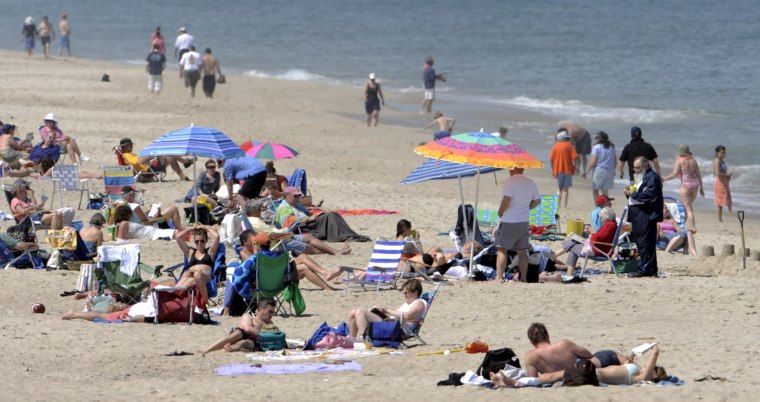Listen up, people; this is important. And by “this,” I mean that vacation you’ve been considering. After crunching the numbers and parsing the polls, I’ve come to the conclusion that the future of the Great American Vacation is in your hands.
The alternative? More stress on the home front, lower productivity in the workplace and a world where the government dictates the rules of relaxation — a concept that’s not as far-fetched as it sounds. Just ask Rep. Alan Grayson (D-Fla.), who last week introduced the Paid Vacation Act of 2009, a first-in-the-nation proposal that would make time off with pay mandatory for millions of people.
“There are certain basic elements that people need to have enjoyable lives,” says the congressman. “They need health care. They need a decent paying job. And for a good life, they need time off.”
Amen to that! But does it really require an act of Congress to make it happen?
No-vacation nation
Heaven knows most Americans (at least those who are still employed) don’t get enough time off. According to the Bureau of Labor Statistics, the average American now works 160 more hours per year than in 1976. And nearly two out of five employed people work more than 40 hours a week, according to the latest data from Expedia.com.
And it’s killing us, say the folks at Take Back Your Time, a vacation advocacy group. Men who don’t take regular vacations are 32 percent more likely to die of heart attacks. It’s even worse for workaholic women, who have a 50 percent higher risk — and are more than twice as likely to suffer from depression — than their vacationing counterparts.
Vacation advocates also point out that time off leads to less stress, lower health care costs and greater productivity. Work-related stress and burnout, they say, cost the U.S. economy more than $300 billion per year, and workers have demonstrated impressive gains in productivity in the weeks and months after a vacation. (One New Zealand study, for example, showed that workers slept better and were 30–40 percent more alert on the job upon their return, although presumably not at the same time).
And yet, too many Americans voluntarily forgo the time off they’re entitled to, a condition that Expedia refers to as Vacation Deprivation. According to the company’s latest research, American workers get an average of 13 vacation days per year — the lowest total in the industrial world, by the way — but more than a third of them (34 percent) fail to use it all. On average, each American worker “gives back” three days of vacation per year, an estimated loss of 436 million days in 2009.
Which, when you think about it, raises an interesting question. If the Paid Vacation Act of 2009 were to become law, would people who already get vacation, but fail to use it, suddenly change their ways? Would they be penalized if they didn’t — and what exactly would you do? Write them up? Dock their pay? Make them take double vacation?
Good intentions, questionable impact
All kidding aside, I have no doubt that Rep. Grayson means well. His bill would require companies with more than 100 employees to provide at least one week of paid vacation after one year of service. The legislation would also mandate two weeks of paid vacation for those companies and one week for companies with at least 50 employees, both effective three years after passage. As Grayson notes, approximately 28 million Americans — roughly a quarter of the work force — currently get no paid vacation at all.
(On the other hand, it’s rather telling that Grayson represents Orlando and its environs and that he came up with the idea during a trip to Disney World. Considering that more paid vacation would almost certainly translate into more visits to the Magic Kingdom, one could be forgiven for seeing little mouse prints all over the legislation. But I digress ...)
More to the point, perhaps, is whether a Paid Vacation Act would have much effect. Most large companies already provide a week or more of paid vacation. (Full disclosure: As an independent contractor, I don’t get any paid vacation, which, sad to say, makes sense. Who’d pay me? Me?) Besides, at a time when millions are out of work altogether and involuntary, open-ended “vacations” loom over millions more, I would think there are more pressing matters at hand.
In the meantime, the bill will no doubt stir up plenty of debate. Some will see it as a means to protect workers and provide a benefit that every other developed nation already does. Others will view it as a threat to small business and another example of “nanny state” legislation. Ultimately, the issue is probably moot as the proposal almost certainly won’t pass.
Like I said before, your vacation is in your hands.
Rob Lovitt is a frequent contributor to msnbc.com. If you'd like to respond to one of his columns or suggest a story idea, .
